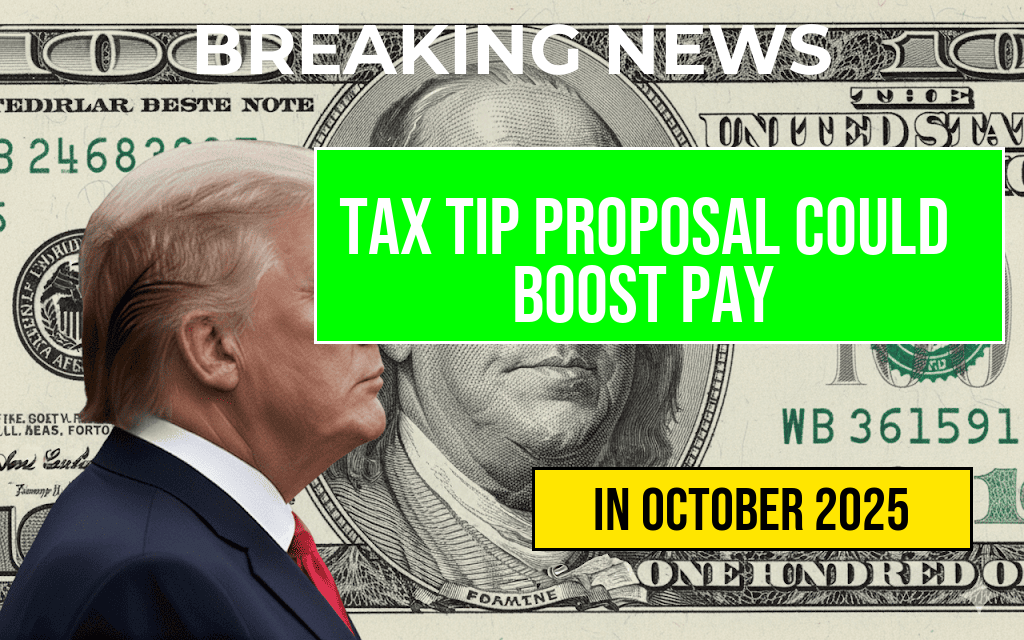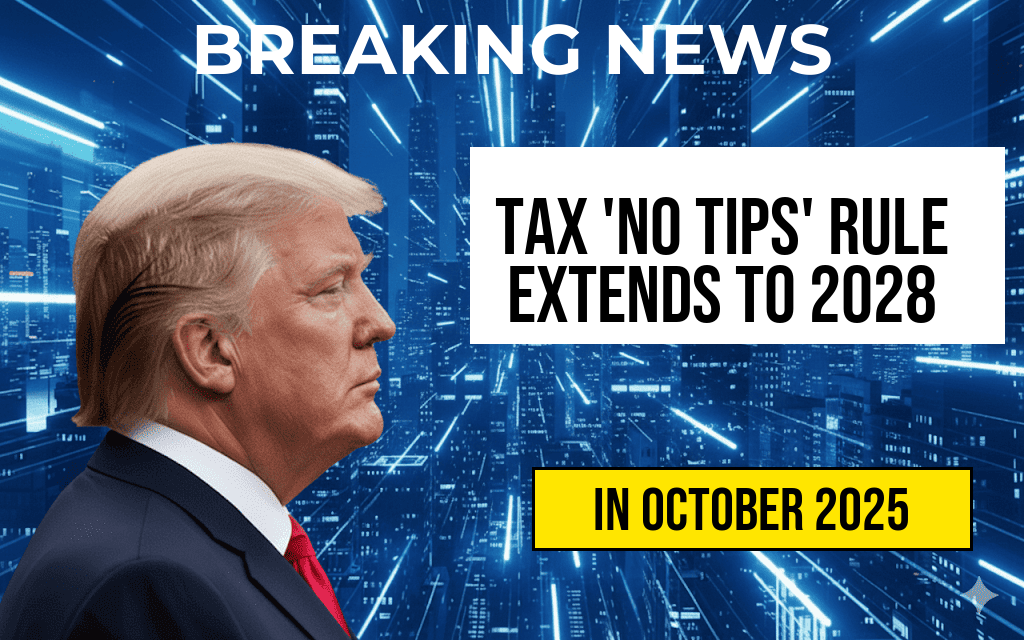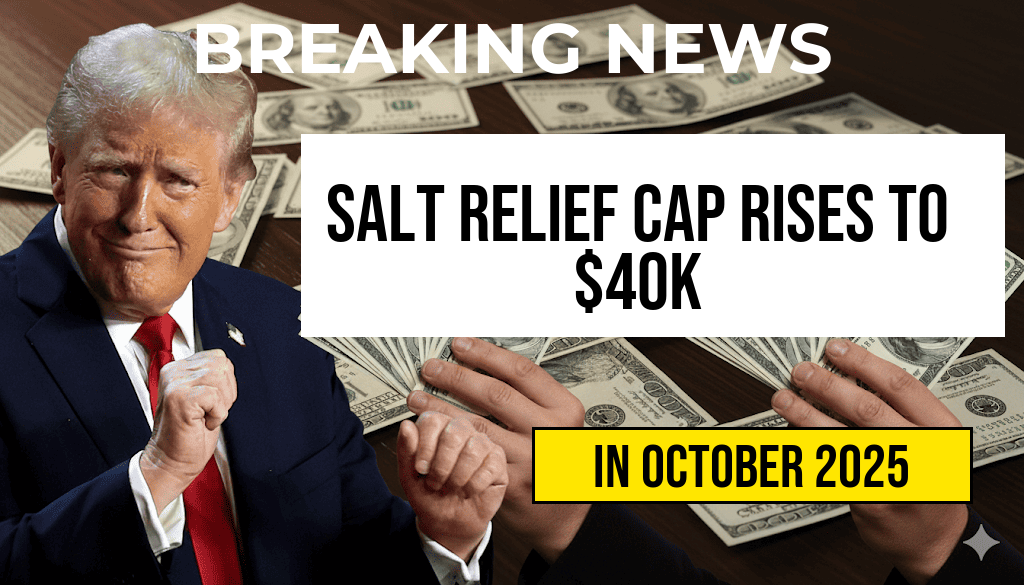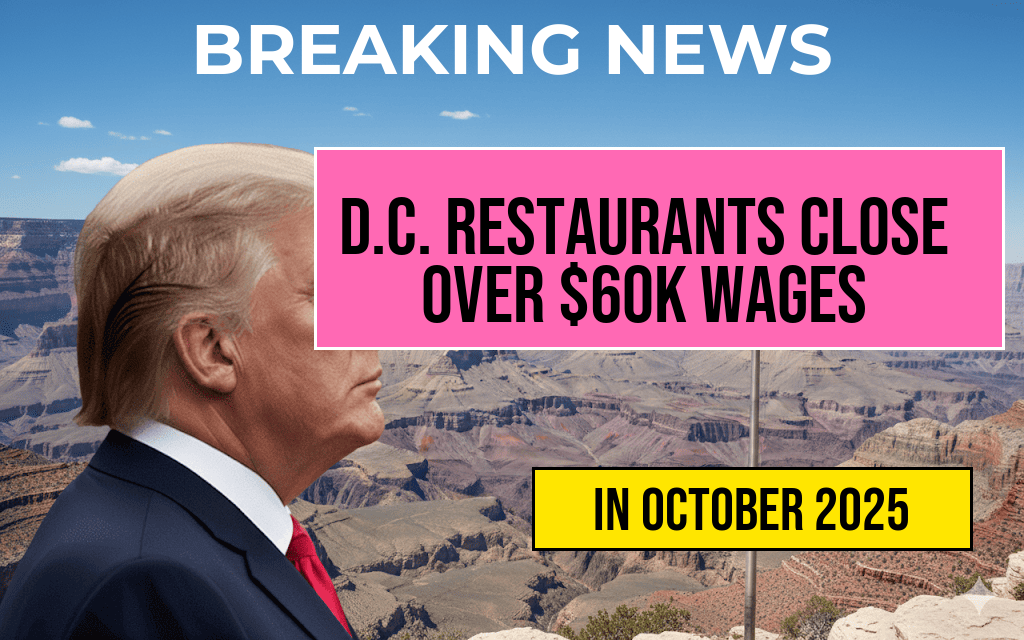Tax ‘No Tips’ Rule Extends Through 2028 with a $25,000 Annual Cap You Must Know
The IRS has announced the extension of a critical tax provision that affects millions of restaurant and hospitality workers across the United States. The so-called *‘No Tips’ rule*, which limits the amount of tip income that can be excluded from taxable wages, will now remain in effect through the end of 2028. Under this rule, employers are restricted from excluding more than $25,000 of annual tip income from their employees’ taxable wages. This development comes amid ongoing debates over fair taxation in the service industry and aims to bring greater transparency and compliance to tip reporting practices.
Originally implemented as part of broader tax reform efforts, the extension aims to prevent employers from undervaluing tip income and shifting the tax burden onto workers. The rule primarily targets establishments that attempt to claim large tip exclusions while underreporting actual tips received. For employees, this means stricter reporting requirements but also more clarity on their taxable income. Meanwhile, industry stakeholders are closely watching how this extension will influence payroll practices and tax compliance over the coming years.
Understanding the ‘No Tips’ Rule and Its Implications
The rule stems from IRS regulations that restrict the amount of tip income that can be excluded from taxable wages. Historically, employers could exclude up to a certain threshold of tip income, but concerns arose over potential abuse and underreporting. The extension of this rule through 2028 solidifies the government’s effort to close loopholes and enforce accurate reporting.
For workers, the main takeaway is that tips exceeding the $25,000 annual cap must be reported as taxable income. Employers are required to withhold taxes accordingly and report tip earnings to the IRS. Failure to comply can lead to penalties for both parties, emphasizing the importance of transparent tip reporting.
Key Details of the Extension
| Aspect | Details |
|---|---|
| Extension Duration | Through December 31, 2028 |
| Annual Tip Cap | $25,000 |
| Impact on Employers | Must report all tips exceeding the cap as taxable wages |
| Impact on Employees | Requires accurate tip reporting; potential for increased tax obligations |
| Enforcement Focus | Reducing underreporting and ensuring tax compliance in the service sector |
Industry Response and Practical Considerations
Hospitality associations have expressed cautious support for the extension, citing concerns about administrative burdens but recognizing the importance of fair taxation. Restaurant owners, in particular, are advised to review their payroll and tip reporting procedures to comply with the new rules.
Employees should maintain meticulous records of their tips, including cash and credit card tips, to ensure accurate reporting. The IRS offers guidance for reporting tips on Form 4070 and related documentation, which can help workers avoid inadvertent underreporting. Employers, meanwhile, are encouraged to implement clear policies and training to facilitate compliance.
Potential Impact on the Service Industry
- Increased Transparency: The extension aims to reduce the scope for underreporting tips, promoting fairness in tax contributions.
- Tax Revenue Impact: Expect modest increases in tax collection from tip-dependent workers, potentially influencing overall federal revenue.
- Operational Adjustments: Employers may need to upgrade payroll systems or revise tip pooling arrangements to align with the cap.
- Worker Income Considerations: Employees reporting higher tips could see increased tax withholdings, affecting take-home pay.
Looking Ahead: Policy and Enforcement Trends
As the IRS continues to prioritize compliance, further guidance and enforcement initiatives are anticipated. The agency has committed to monitoring tip reporting patterns and cracking down on schemes that seek to circumvent tax obligations. Meanwhile, legislative discussions around alternative approaches to tipping and wage structures remain ongoing, with some advocates pushing for higher base wages to reduce reliance on tips altogether.
For detailed guidance, workers and employers can consult resources from the IRS or visit [IRS Tips and Wages](https://www.irs.gov/businesses/small-businesses-self-employed/tips-and-wages) to stay informed about reporting requirements and recent updates.
With the extension secured until 2028, the ‘No Tips’ rule underscores the ongoing effort to create a more equitable and transparent taxation system within the service industry. Both employees and employers should stay vigilant to ensure compliance and understand the financial implications of tip reporting in the coming years.
Frequently Asked Questions
Question
What is the Tax ‘No Tips’ Rule and how does it affect tip reporting?
Question
How long will the ‘No Tips’ Rule be in effect, and what is the significance of the 2028 extension?
Question
What is the annual cap on tip reporting under this rule, and how does the $25,000 limit impact workers?
Question
Who is eligible for the tip reporting exemption under this rule, and are there any exceptions?
Question
How might the extension through 2028 influence tax compliance and financial planning for workers who rely on tips?










